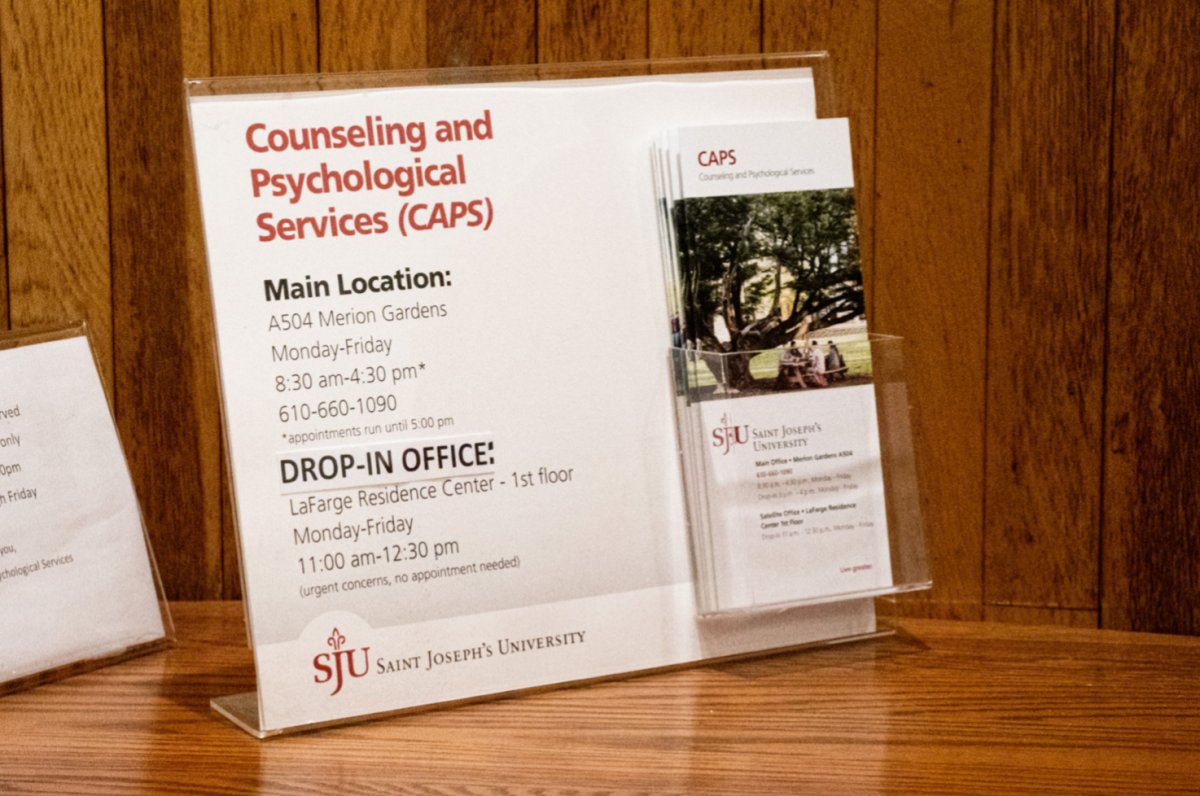Counseling and Psychological Services (CAPS) in collaboration with Juliann Spara ’23, Lewis-Biden Chair of University Student Senate (USS), are in the process of developing HawkHealth, an app meant to make health services more accessible to students.
Spara, who proposed the idea to CAPS, hopes the app will dismantle the stigma of mental health.
“I think this would really destigmatize mental health on campus, because it would get more people involved in the mental health movement,” Spara said.
The HawkHealth app will ask students to take an online screening survey to determine their levels of anxiety and depression during their first use and then after every four weeks. Then, based on the responses from the survey, the app will make a recommendation for treatment. Surveys can be submitted to CAPS at any time but
can have up to a 12 hour reply period. Greg Nicholls, Ph.D., director of CAPS at St. Joe’s, said he has been looking at other college’s digital therapy services over the last two years to design virtual resources for students.
“The university counseling centers are increasingly utilizing digital applications to broaden their capacity to help students” Nicholls said. “I’ve previewed them, attended conference sessions detailing their use and spoken to other counseling center directors.”
The app handles different levels of anxiety and depression, categorizing each student’s response into either no levels, mild to moderate or severe.
If severe levels are detected, students will immediately be contacted through the mobile app by a CAPS counselor. If mild to moderate levels are detected, the student will be given the option of contacting an SJU trained peer or a CAPS counselor.
The SJU trained peers will be stu- dents enrolled as a psychology major with a declared concentration in clinical psychology. They will be required to undergo extensive training, similar to the Rape Education and Prevention Program (REPP). The training will help the peers understand how to manage specific situa- tions with their fellow students, according to Spara.
“It would obviously be easier [for students to access] healthcare and mental health services,” Spara said.
Nicholls said all initial information received from students’ submitted screen- ing surveys is confidential.
“Other students and CAPS counselors will not be able to identify the person using the app,” Nicholls said. “But CAPS will be supplied with aggregate anonymous data to help inform us of the general mental health status of our students.”
Spara said that ideally she would want students to download the app at first-year orientation like they are made to download the SJU Safe app.
“Students would be able to get therapy through their phone, and it’d be like text messaging,” Spara said. “If you feel men- tally down, you could text a peer on campus and receive help that way.”
Robin Lucas, team member of notOk, an app that supports people struggling with mental health issues, said mental health apps are especially beneficial for college students.
“College students are busy, and having those resources be super accessible, convenient, and time effective is totally a plus,” Lucas said.
Nicholls said in addition to HawkHealth, CAPS will also have an interactive mental health screening program built into their website next fall.
As for the app’s development status, Spara said they do not know exactly when the it will come out as it is still in planning stages. Spara is currently working with the Office of Information Technology and CAPS to decide if the app will be created in-house or through a third party.
“Right now, we’re in between having IT develop it or outsourcing it, whichever would be cheaper is kind of what we’re looking for,” Spara said, “but it’s still in the planning phases.”













































